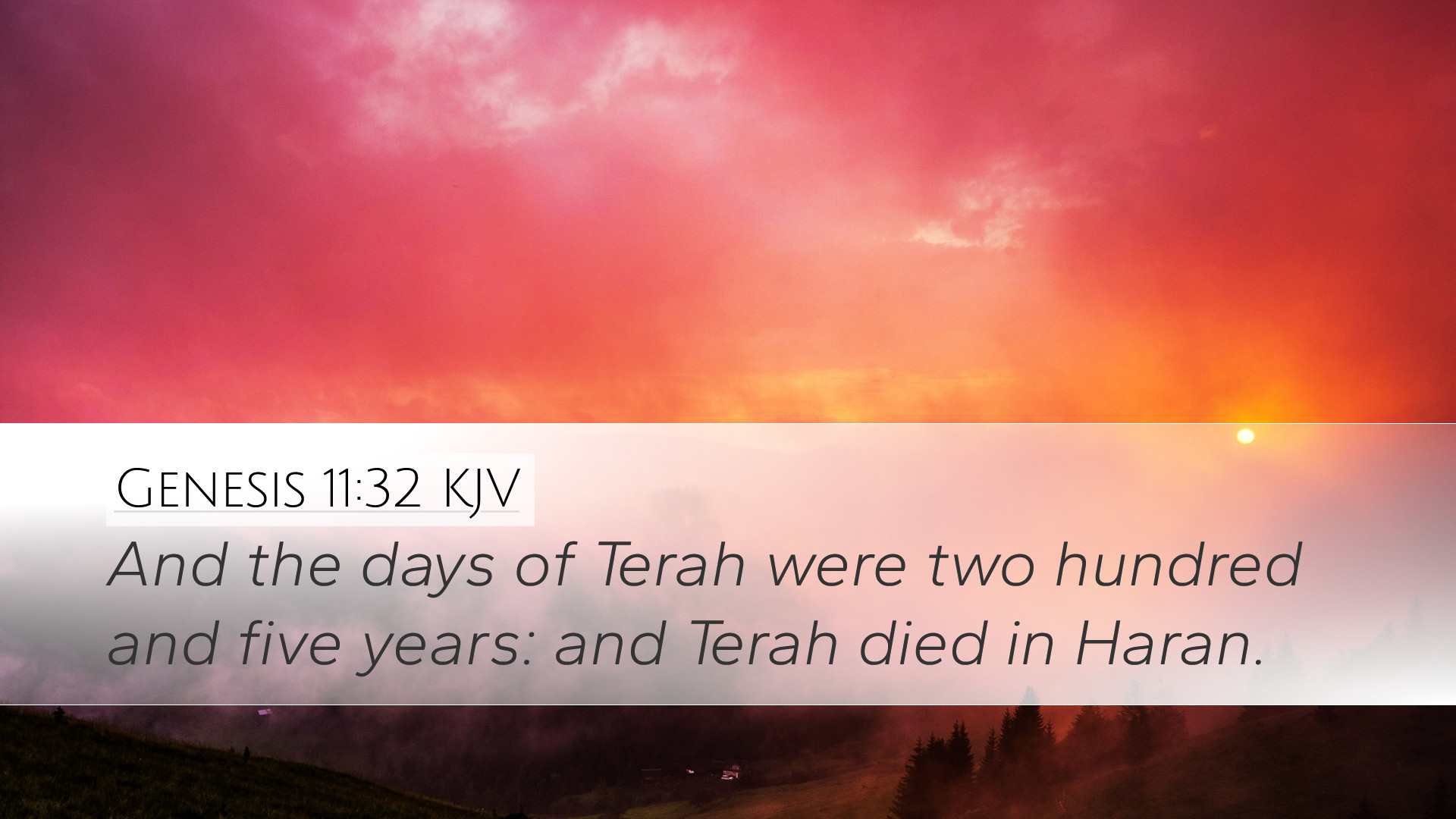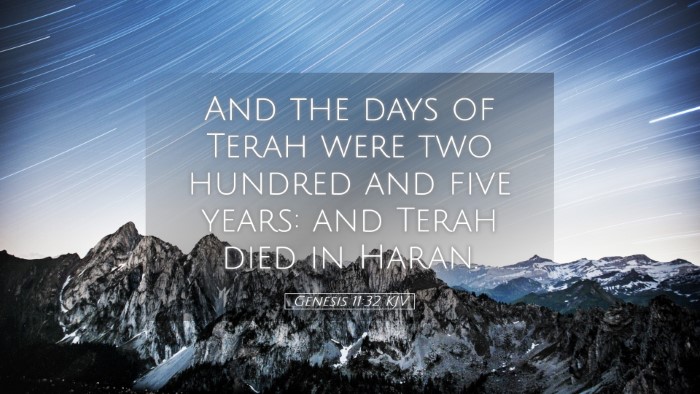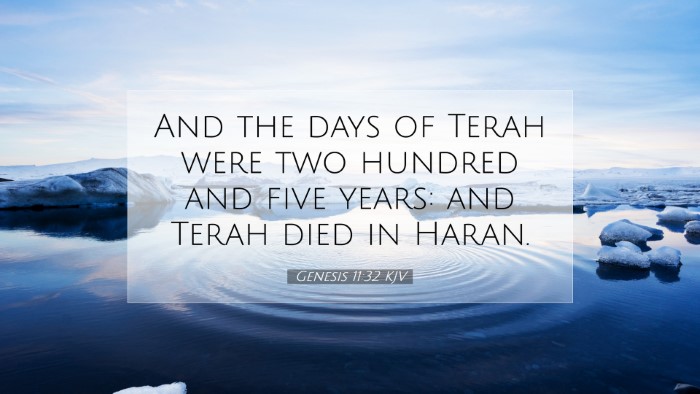Commentary on Genesis 11:32
The passage Genesis 11:32 states, "And the days of Terah were two hundred and five years: and Terah died in Haran." This verse, while succinct, is rich in theological significance and historical context. The demise of Terah, the father of Abram (later Abraham), marks a pivotal moment in the narrative of God's covenant with humankind.
Contextual Overview
This verse appears within the genealogical records of Genesis, providing a transition from the post-flood world into the patriarchal narratives. Terah's death is not just a biographical note but serves as a bridge to the covenantal promises that God would later extend to Abram.
Theological Reflections
From the commentaries of Matthew Henry, Albert Barnes, and Adam Clarke, several theological themes emerge:
- The Value of Life and Its Duration:
Terah lived for 205 years, which Matthew Henry notes reflects the extended lifespan that characterized earlier generations. The longevity serves to emphasize the transition from the antediluvian age to the more condensed lifespans in Israel's later history. It symbolizes how covenantal relationships often take time to develop and mature.
- The Importance of Terah's Legacy:
Albert Barnes highlights that Terah's significance lies not only in his biological connection to Abram but also in his role in the formative years of a covenant community. His death in Haran, a center of idol worship (as noted in Joshua 24:2), illustrates the tensions between a cultural heritage and divine calling.
- The Concept of Calling and Departure:
Adam Clarke points out the foreshadowing in Terah's death, as it leads to Abram's calling by God. It signifies a breaking away from the past and the beginning of a new journey. Terah's inability to fulfill his calling may speak to an invitation for future generations to step into their divine destinies.
Historical Context
The historical context of Terah's life and death provides insight into the pagan practices of Ur of the Chaldeans, a significant cultural backdrop for Abram's later calling. Matthew Henry notes that Terah's lineage, though marked by idolatry, had a part to play in the unfolding of God's redemptive narrative.
Cultural Dissonance
The death of Terah in Haran serves to illustrate a moment of cultural dissonance. As noted by Albert Barnes, this reflects the influence of idolatry on Terah’s life and the subsequent call from God that Abram would receive. It symbolizes the contrasting realities of family loyalty versus divine calling.
Implications for Theological Reflection
This brief verse invites pastors, students, and theologians to reflect on several critical aspects:
- The Nature of God's Call:
The call to Abram occurs in a context marked by family ties and cultural expectations. This encourages a reflection on how modern believers confront similar challenges in responding to God's call amidst familial and cultural obligations.
- The Role of Heritage:
Terah's legacy—both physical and spiritual—provokes questions regarding heritage and its impact on faith. Are we constrained by family traditions, or can we forge new paths in our relationship with God?
- Death as a Transition:
Terah's death signifies the end of an era and the beginning of a new journey for Abram and his descendants. This can also be seen as a metaphor for the necessary death of old ways of thinking and living to embrace new covenant relationships with God.
Conclusion
In summary, Genesis 11:32, though brief, encapsulates the themes of legacy, calling, and cultural transition. Public domain commentaries offer profound insights that challenge contemporary readers to examine their lives in light of God's unfolding plan. The transition from Terah to Abram foreshadows a much larger narrative of redemption that continues to impact faith communities today.
As we reflect on this passage, may we be encouraged to respond faithfully to God's calling, stepping away from past traditions that do not honor Him and embracing a future filled with hopeful anticipation of His promises.


